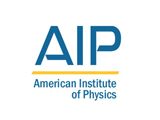
AIP Publishing, a division of the American Institute of Physics (AIP), is pleased to announce the appointment of Judith MacManus-Driscoll as editor of its new open access, rapid publication journal, APL Materials. Affiliated with AIP’s highly regarded Applied Physics Letters (APL), APL Materials will build on the history and rich tradition of APL, now celebrating its 50th anniversary.
MacManus-Driscoll is a professor of materials science in the department of materials science and metallurgy of the University of Cambridge (UK). Her research focuses on the properties of complex oxide materials and nanostructures with wide-ranging functions. During the last 20 years of her career, she has published more than 250 papers in this area. She is a fellow of the American Physical Society and the Institute of Physics (UK), a member of the Materials Research Society, and a long-term visiting staff member at Los Alamos National Laboratory.
“I am extremely pleased and proud to take on the position of editor for this new open access publication,” commented MacManus-Driscoll. “APL Materials is being launched at a very exciting time for materials science and a similarly exciting time for academic journals. We are only at the beginning of this exciting journey of condensed matter design and control. The journal will communicate the most valuable and timely research in the field, enabling us, for example, to further our quest for ever-higher-performance functional products and to address needs that range from healthcare to our urgent demand for clean energy.”
“Under Professor MacManus-Driscoll’s editorship, APL Materials will rapidly become one of the premier publications serving the materials science community,” stated John Haynes, vice president of publishing at AIP. “The second of AIP’s gold open access journals, APL Materials will span the entire breadth of functional materials research, covering chemical, biological and physics topics.”
Just as nature does not apply rigid borders to science disciplines, neither will APL Materials. The journal will publish both experimental and theoretical articles on materials with a range of functional properties including, but not limited to, electronic, optical, electrical, magnetic, biological, ionic, multifunctional, and emergent phenomena. Manuscripts focusing on materials aspects of small‐length‐scale phenomena and devices are also invited.





















